Animals-and-Pets

BBC Wildlife
Super-strong animals
Some of the world's mightiest creatures, from crabs to crocs
2 min |
April 2025
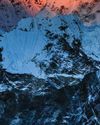
BBC Wildlife
Does anything live at the top of Mount Everest?
TERRESTRIAL HABITATS DON'T GET ANY higher than the summits of Himalayan peaks. And Himalayan peaks don't get any taller than Everest.
6 min |
April 2025
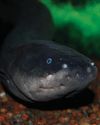
BBC Wildlife
Electroreception: a shocking sense
ELECTRICITY IS THE RESULT OF interactions between objects with electric charge - and batteries aren't the only things that can be charged.
2 min |
April 2025

BBC Wildlife
FEMALE OF THE SPECIES
These ladies have a voice – and a taste for vandalism
2 min |
April 2025
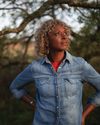
BBC Wildlife
GILLIAN BURKE
“Losing sight of this version of the human story hurts us all in the end”
2 min |
April 2025

BBC Wildlife
7 nature encounters for the month ahead
WITH NATURALIST AND AUTHOR BEN HOARE
3 min |
April 2025
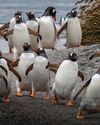
BBC Wildlife
WALKING WITH PENGUINS
Mourning her late husband, photographer Ursula Clare Franklin needed a new direction. Soon she was travelling the world, on a quest to photograph her favourite animal, the penguin all 18 species of them
7 min |
March 2025
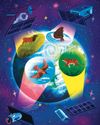
BBC Wildlife
"Satellites and space tech play a huge role in protecting the natural world"
Far above our heads, space technology is supporting conservation in exciting and vital ways
6 min |
March 2025
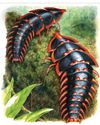
BBC Wildlife
FOREVER YOUNG
The prehistoric-looking insect that never grows up
2 min |
March 2025
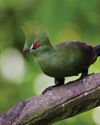
BBC Wildlife
BIRDS THAT BREAK THE RULES
Discover the extraordinary birds that defy nature's norms
9 min |
March 2025

BBC Wildlife
FEMALE OF THE SPECIES
Vampire bats make for blood-spewing besties
2 min |
March 2025
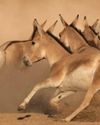
BBC Wildlife
Onagers gallop back to Saudi Arabia
Rare subspecies fills the desert niche left by its extinct relative
1 min |
March 2025
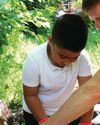
BBC Wildlife
Front lines for nature
Inside the ambitious UK project rallying local communities to fight for wildlife
5 min |
March 2025
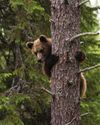
BBC Wildlife
"Europe seems hellbent on creating the most hostile environment for bears possible"
WE EUROPEANS ARE INCAPABLE of living alongside predators.
3 min |
March 2025
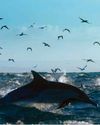
BBC Wildlife
Airborne lifts off on Sky Nature
ACROSS THE PLANET, ANIMALS HAVE conquered the skies in ways we can only dream of.
1 min |
March 2025
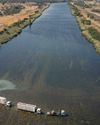
BBC Wildlife
CROSS COUNTRY
Translocating elephants is no mean feat-but it's helping this iconic mammal to reclaim its historic lands
7 min |
March 2025
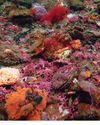
BBC Wildlife
Oyster reefs in ruins
Vital habitat is all but lost from Europe's seas
1 min |
March 2025
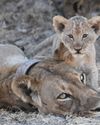
BBC Wildlife
Protect the prey and the lions will roar
Study proves that lions thrive when snaring is reduced
1 min |
March 2025
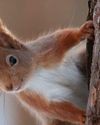
BBC Wildlife
wild MARCH
7 nature encounters for the month ahead
3 min |
March 2025

BBC Wildlife
GILLIAN BURKE
\"Many of us have been disconnected from the miracle that is water\"
2 min |
March 2025
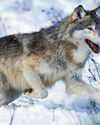
BBC Wildlife
ALL YOU EVER NEEDED TO KNOW ABOUT Wolves
WOLVES ARE THE LARGEST members of the dog family (Canidae) and can be found in Europe, Asia, North America and Africa. They are highly sociable mammals that typically travel and hunt in packs.
3 min |
February 2025
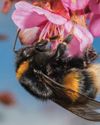
BBC Wildlife
How is a queen bee chosen?
PEOPLE HAVE LONG PEERED INTO beehives and seen a model for human society. There is much to admire the work ethic, the cooperation, the selflessness. But a hive could equally be seen as a product of a repressive class system, even a tyranny. Because some bees are more equal than others.
2 min |
February 2025
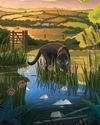
BBC Wildlife
Big cats in BRITAIN
Sightings and DNA tests suggest that large cats such as black leopards are quietly naturalising in Britain. Here’s the whole story.
7 min |
February 2025
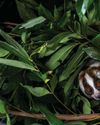
BBC Wildlife
SLOW BUT SURE
The Javan slow loris has suffered a huge population decline in recent years. But conservation efforts are turning the tide for this fascinating animal.
7 min |
February 2025
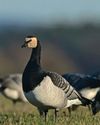
BBC Wildlife
wild FEBRUARY
7 nature encounters for the month ahead
3 min |
February 2025
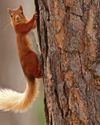
BBC Wildlife
AI brings hope for rare reds
New tech 'Squirrel Agent' can target invasive greys at feeders
1 min |
February 2025
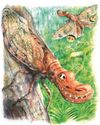
BBC Wildlife
SHAPE OF YOU
Its hefty headgear has garnered this sap-sucker mythical status
2 min |
February 2025
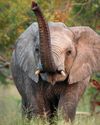
BBC Wildlife
Smell: an ancient animal sense
DETECTING CHEMICALS IN THE environment enables an individual to identify molecules secreted by predators or prey, potential poisons and sexual partners. This benefit D to survival and reproduction helps explain why smell - olfaction - is probably the oldest sense and evolved 500 million years ago, around the origin of animals.
2 min |
February 2025
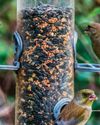
BBC Wildlife
Feeding birds may kill them
We love to attract birds to our gardens, but feeders can pose a deadly risk
4 min |
February 2025
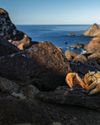
BBC Wildlife
A CRAB CALLED JOHN
The yellow land crab lives a secret life on an island stronghold off the coast of Brazil. One photographer went to find out more about this charismatic crustacean.
7 min |
